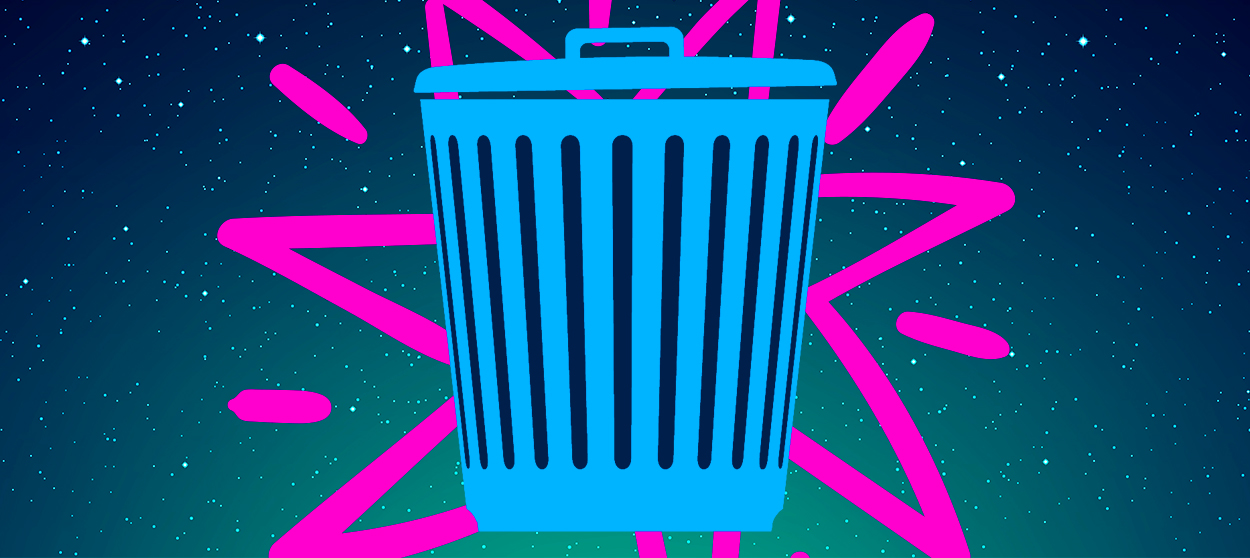American wasteland
How we became slaves to a mindless, wasteful, ugly ideal of convenience


The almost unfathomable volume of modern Americans' wastefulness would have been astonishing to anyone in any previous civilization throughout human history. A person who lived before the middle of the last century would not have believed it possible for even a very wealthy household to possess in a lifetime what even the poorest Americans throw away in a year.
We should thus applaud Seattle for officially becoming the first major U.S. city to ban plastic drinking straws. It's a small step, but one of the few inarguably wholesome public policy decisions that have been made recently by any government at any level.
It will also almost certainly be the occasion for a certain amount of libertarian belly-aching, as if sipping from a polypropylene tube instead of lifting a glass to one's lips were a cherished liberty enshrined in the Bill of Rights and the United Nations Charter. But really it ought to be uncontroversial. Similar laws have already been proposed throughout the European Union, in Vancouver, and in the private household of Queen Elizabeth. Some 70 percent of Canadians say that they are in favor of such a ban.
The Week
Escape your echo chamber. Get the facts behind the news, plus analysis from multiple perspectives.

Sign up for The Week's Free Newsletters
From our morning news briefing to a weekly Good News Newsletter, get the best of The Week delivered directly to your inbox.
From our morning news briefing to a weekly Good News Newsletter, get the best of The Week delivered directly to your inbox.
Part of the reason there is less grumbling from the public about these things than one might expect — and even a surprising amount of willingness from major corporations to cooperate with and even preempt state and municipal regulations — is that the scale of our culture of waste is matched only by the heedlessness with which we participate in it. No one is especially invested in Styrofoam or plastic forks, but all of us use them without giving it a second thought. In the so-called developed world and increasingly in the "developing" one as well, we have become slaves to a mindless, wasteful, ugly ideal of convenience. We are so used to throwing things away by the millions — one estimate suggests that in this country alone we are burning through as many as 500 million plastic straws every day — that we cannot imagine what it would be like to live any other way.
The nitpickers and meliorists who dream of better and more cost-effective recycling technology, or blithe deniers who pretend to be unfazed by images of the growing trash continents in our oceans, are wrong. It really doesn't matter what the measurable effect of waste is. Even if it were to be proven tomorrow beyond any possible doubt that so far from being an ecological crisis of almost unimaginable proportions, seabirds and fish in the North Atlantic were actually healthier for all the plastic they ingest, it would still be wrong. It would be wrong because thrift — not to be confused with being cheap; in practice the two are almost always opposites rather than synonyms — is as virtuous in itself as waste is inherently wicked. It would be wrong because there is something violent and disfiguring about going through life interacting almost exclusively with objects of which one will have no memory, items produced en masse, generally under brutal working conditions, for the sole purpose of housing a certain number of ounces of high-fructose corn syrup before being tossed, never to be seen or thought of again.
A ban on plastic straws and other single-use packaging like the one adopted in Seattle is only the first step, however. It is not even an especially important one. What we really need is a revolution, or rather a restoration, of our habits, a revival of a way of life that has almost completely vanished. We need a return to permanence.
Such a return would of course involve a move away from individual single-use packages. There is no reason in the world that everything from Lucky Charms to beer to steak could not be transported and purchased from stores in reusable containers. This is, believe it or not, exactly how people bought nearly everything only a century ago. The milk man with glass bottles is not such a distant memory — and in Britain he is even making a comeback.
A free daily email with the biggest news stories of the day – and the best features from TheWeek.com
Planned obsolescence will have to go as well. No one should buy a telephone or a computer on the assumption that in two years it will be time to chuck it in a bin or hire some boutique recovery service to haul it away to be mined for raw material. The worldwide textile industry will have to be totally re-imagined; no more plastic clothes made in sweatshops so that Americans can perform a parody of leisure in brand logo-festooned rags. Sheep, one likes to imagine, will very likely play a more prominent role in the future of any rightly ordered society.
Things — crockery, furniture, electronics, vehicles — should be manufactured to last as long as they can. It should be both possible and desirable to fix appliances rather than buy new ones. Instead of plastic boxes that can only be repaired with the aid of a manufacturer-provided computer, cars should be made of glittering steel and fixable by anybody's bored grandpa, the way they were half a century ago, but vastly improved by our ability to make them run faster and more cleanly on less fuel. And eventually cars themselves should start to disappear, not only in cities but in small towns. We should get serious about rail in this country, but we should also make cycling something other than a boutique mode of transportation feasible only for urban professionals.
All of these things and many more are necessary to realize the kind of future I am describing, one in which we are more mindful of the world around us and more firmly grounded in the soil and the great natural processes that produce the things we require and enjoy. They will require an extraordinary amount of effort and creativity, but more important than that, they will require a great slowing down. A world in which one has time to scrub a cotton diaper or two, as opposed to throwing away one made from polyethylene film, sodium polyacrylate, polypropylene, and Disperse Blue 106 and 124 that won't decompose for half a millennium, is one in which we are all doing a lot less while thinking more carefully about everything we do manage to accomplish.
Matthew Walther is a national correspondent at The Week. His work has also appeared in First Things, The Spectator of London, The Catholic Herald, National Review, and other publications. He is currently writing a biography of the Rev. Montague Summers. He is also a Robert Novak Journalism Fellow.



